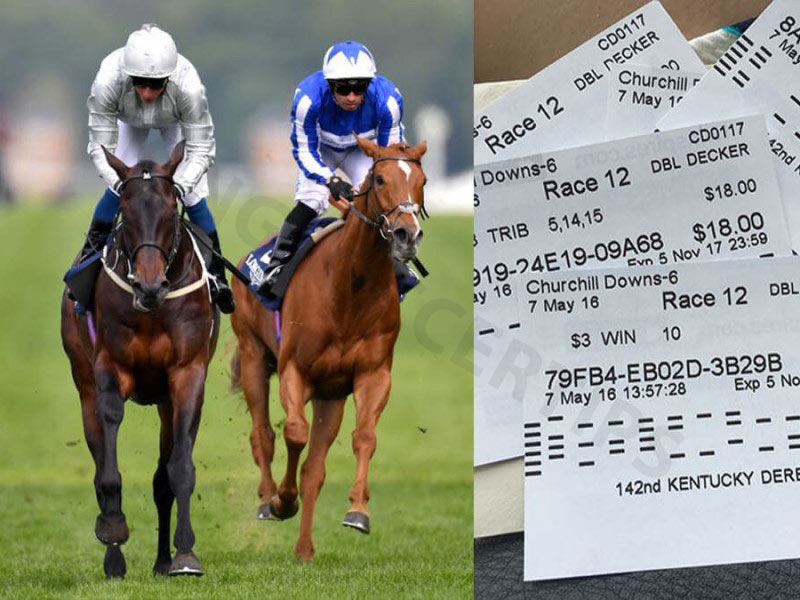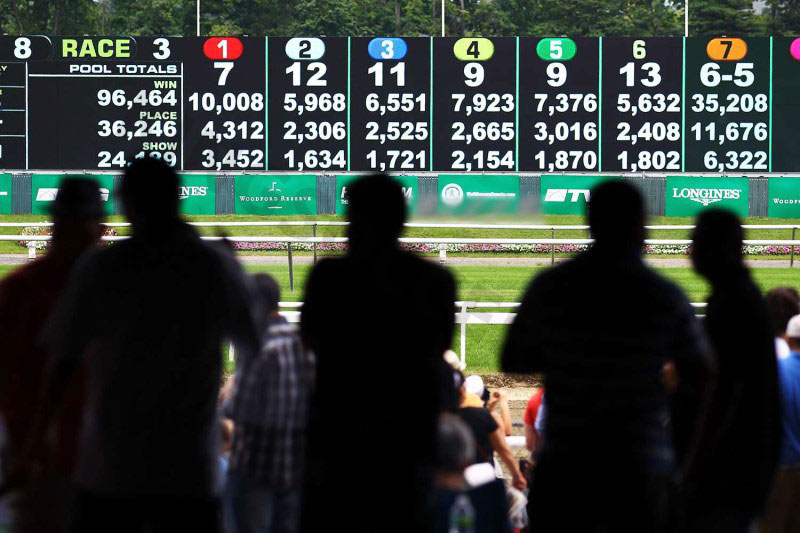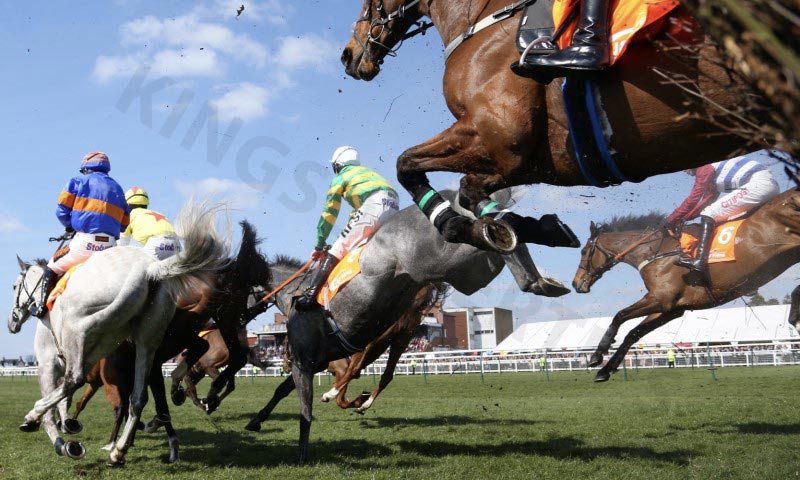Summary of accurate horse racing betting rules that you should know
Horse racing betting is an activity with a long history and undeniable appeal, having become an indispensable part of sports culture around the world. However, to ensure fairness and transparency, along with protecting the rights of participants, strict legal regulations on horse racing betting have been established and maintained. Understanding horse racing betting laws not only helps players have a safe and legal experience, but also contributes to maintaining the health and sustainability of this dramatic and fascinating sport. In this article, we will explore with kingsoccertips.com the important and basic terms of horse racing betting rules. Thereby helping players grasp the necessary regulations to participate reasonably and responsibly.

What is horse racing betting?
Horse racing betting is one of the oldest and most popular forms of betting in the world. Originating from ancient horse races, this activity has developed into a large entertainment industry, attracting millions of participants each year. Horse races not only bring thrilling and dramatic moments but also create opportunities for players to test their luck and analytical skills.
Horse racing betting includes many diverse forms, suitable for each player’s preferences and strategies. Participating in horse racing betting does not simply rely on luck but also requires players to have knowledge and analytical skills. Understanding racehorses, the riders’ abilities, weather conditions and horse racing tactics are important factors. Players often carefully research the competition history of horses and riders, as well as track conditions to make wise decisions and increase their chances of winning.
Horse racing betting brings many entertainment benefits and money-making opportunities to players, but also has many potential risks. The biggest benefit is the thrill, drama and joy of predicting the correct outcome. However, the risk of losing money is inevitable, especially when players are inexperienced or cannot control their spending. To participate properly, players need to have a money management strategy and understand the relevant legal regulations.
Legal regulations on horse racing betting are established to ensure transparency, fairness and protect the rights of participants. In many countries, horse racing betting is strictly regulated with specific regulations on licensing, monitoring and sanctioning violations. Players need to understand these regulations to participate legally and responsibly. Besides, betting must be done within each individual’s financial limits, avoiding addiction and other negative consequences.
Learn betting rules horse racing for beginners
1. Rules of horse racing betting
Horse racing betting is a popular activity and is strictly regulated to ensure fairness and transparency. Horse racing betting rules include regulations on how to bet, types of bets, and the rights and responsibilities of players and bookmakers. These regulations help maintain fairness and order in the betting process, while protecting the rights of all parties involved.

The bookmaker will clearly regulate and inform betting rewards based on the results of which racetrack, which agency is certified, the race schedule and betting time. The racing horses will be numbered, the player chooses the type of bet ticket, the betting horse and the corresponding amount, from which the bet ticket is issued. If your bet prediction is correct according to the outcome of the match, the house will pay a reward according to the prescribed rate.
Furthermore, if a horse gives up, the bets calculated according to the horse racing betting rules are as follows:
- If the bet is single, the player will receive a refund.
- For double, triple, and quadruple bets, refunds will only be given if the race horse abandons the race.
- For example, if you bet on a cross, reduce the number of cross bets.
- A racehorse that is disqualified from competing after the competition is considered a last-place horse. If a racehorse is disqualified from competing but does not affect the announced results, the prize money will still be calculated.
- If there are not enough horses competing, some types of bets will not be opened.
2. Some types of bets in horse racing betting rules
In horse racing betting, there are many different types of bets that players can choose from according to horse racing betting rules, including:
- WIN bet ticket: This is a form of betting on 1 number. Players will bet on the horse that will come first and if the result is correct, they will receive a prize. If there are multiple horses that come first, most people who bet on them will win.
- PLACE bet: This is a form of predicting which horses will finish first, second, and third in the race regardless of their rank. If there are only 5 or 6 horses racing in a race, then only bet on the first 2 positions.
- QUINELLA bet ticket: This is a form of betting on 2 horses racing to win the highest prize in the same turn in the correct order. If the racing horses do not return according to the prediction process, the player loses.
- QUINELLA PLACE bet: This is a form of betting on 3 horses to reach the highest position without paying attention to their rankings. This form requires choosing at least 2 horses to bet.
- TIERCE bet: With this bet, the player will bet on the horse to finish first, second, and third in the same race. If you correctly predict their rankings, you will win the bet.
- TRIO bet: This is a combination of bets that place 3 horses in first, second, and third place without paying attention to their rankings. Players need to choose at least two horses to bet on.
- FIRST FOUR bet: This bet will select at least 4 horses to win the 4 highest positions regardless of their ranking order.
- CROSS bet ticket: This is a cross bet ticket and the player chooses from 2 – 6 races at the same time. Payouts and bets of this type are based on WIN/PLACE play.

Once the race is over, the results are officially announced and payouts are made based on the previously set odds. Payment regulations include:
- Winning payout: The player receives a bonus based on his odds and the amount bet.
- Confirmed results: The official results of the race are confirmed by the governing body or racetrack.
- Time limit for receiving rewards: Players must receive rewards within the specified time limit, otherwise the bet ticket will no longer be valid.
3. Regulations on the responsibilities and rights of players and bookmakers
Both players and bookmakers have certain responsibilities and rights in horse racing betting:
Player Responsibilities:
- Comply with the law, house regulations and horse racing betting rules.
- Provide accurate information when registering and placing bets.
- Manage personal finances to avoid addiction or losing control of spending.
Player rights:
- Receive rewards in full and on time when winning bets.
- Personal information and transactions are kept confidential.
- Complain or request dispute resolution if any problems arise.
Bookmaker’s responsibilities:
- Comply with legal regulations and operating licenses.
- Ensure transparency and fairness in the betting process.
- Protect players’ information and rights.

Bookmaker’s benefits:
- Collect service fees from betting activities.
- Legal protection in case players violate regulations.
Understanding and complying with ladbrokes horse racing betting horse racing rules helps players have a safe, legal and enjoyable experience in dramatic horse races.
Some terms you need to know when participating in horse racing betting
Regardless of whether you are an experienced bettor or someone new to horse racing betting, understanding the slang as well as researching horse performance is the key to success. The following covers essential terminology to help you confidently engage in daily betting:
- Apprentice Jockey: These are jockeys aged 16 to 25 who have not yet turned professional and mainly race in obstacle racing seasons.
- Allowance Race: Also known as conditional horse races, is a step up from races for sale of horses. They are not handicap races but conditions apply. For example, amateur jockeys’ horses may carry less weight or mares may carry less weight.
- Ante-Post: Early Bets are placed before an official market is opened for a horse race, sometimes several months in advance. If a horse listed in the early bets does not continue in the race, you will lose the bet.
- Bay: This is the common coat color of a thoroughbred horse. It is reddish brown in color, with black on the horse’s mane.
- Blanket Finish: This term describes a close finish – so close that you could put a blanket over multiple horses at the finish line. You’ll also hear about the finish within the frame, which is as close as the result is determined by a still shot.
- Blinkers: A Blinker is an object horses wear on their heads to stimulate them to focus on running their race and avoid disturbances from surrounding horses.
- Breeder: An individual or organization that raises purebred horses. Good horse breeders can command huge fees for horses bred for racing.
- Claiming Races: Claiming races are races that feature horses listed for sale by their current owners.
- Colt: A colt is a young purebred male horse. They are under 5 years old and have not been neutered. 3-year-old ponies are allowed to compete in major events such as the Preakness Stakes.
- Entire: Also known as an “uncastrated horse,” a stallion is a male horse 4 years old or older.
- Fixed Odds: When you bet on a horse you think will win, your odds are fixed, even though the odds may change over time.
- Flat Race: An obstacle-free race without any jumps, hurdles or obstacles. They can be held over different distances, with shorter obstacle races also known as sprint races. These races feature horses that can achieve the fastest racing times over a racing distance of 5 to 8 furlongs.
- Handicap: A handicap race that pits horses of different abilities against each other, using weight distribution to level the course. Stronger horses will carry more weight.
Conclude
Thus, horse racing betting rules are not just dry regulations, but a foundation for maintaining transparency, fairness and accountability in a popular entertainment activity. Complying with these regulations not only protects the rights of players but also contributes to building a healthy and sustainable betting environment. Thereby, players can enjoy the fun and thrill of horse racing safely and responsibly. It is the combination of passion for sports and compliance with the law that will bring great and more meaningful betting experiences. Good luck to everyone participating in horse racing betting!
